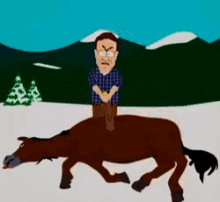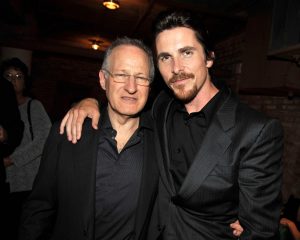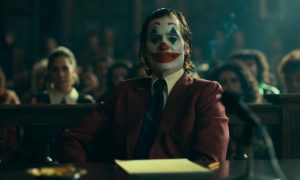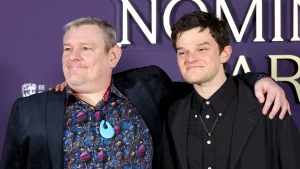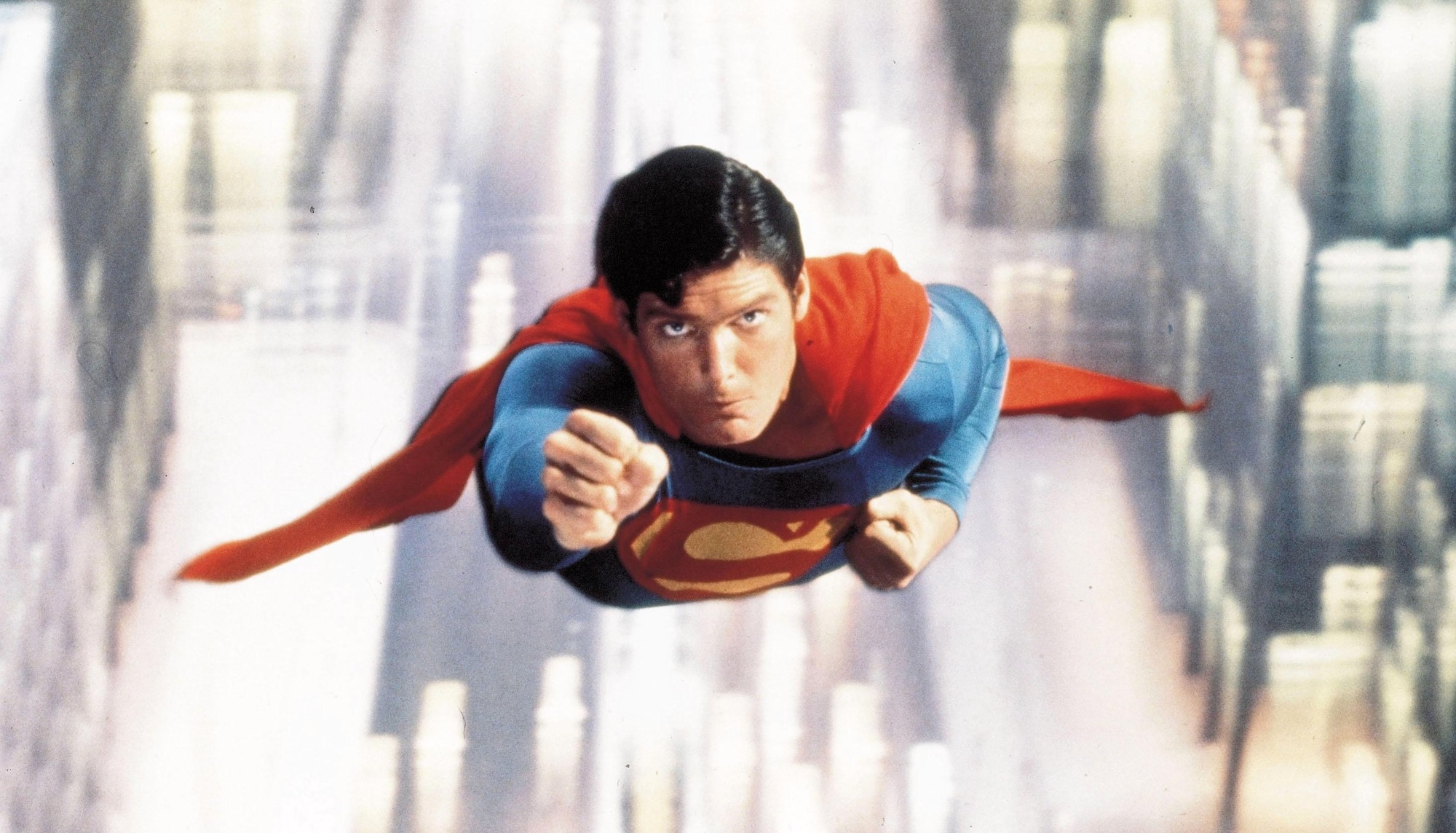
“You’ll believe a man can fly,” boasted the famous tagline for Superman: The Movie. And to its credit, the film pulled it off by delivering state-of-the-art special effects. But as time goes by and technology improves, it’s increasingly clear that the flying scenes aren’t Superman’s true special effect. Rather, it’s star Christopher Reeve, who gives the greatest performance in any superhero movie. Period.
Don’t believe me? Take a look at the oft-shared clip from Superman, in which Reeve’s Clark Kent considers revealing his identity to Lois (an equally great Margot Kidder). In one shot, with absolutely no special effects, we see Reeve straighten his back, pull up his chin, and (yes) pulls off his glasses. We see right before our eyes the difference between Clark Kent and Superman. Even today, you believe that even keen-eyed Lois would miss the similarities between Clark and Superman.
Wonderful as it is, that scene creates a problem for anyone who would follow in Reeve’s red boots. Who else could so perfectly embody the differences between Clark and Superman? Who else could carry Superman’s fundamental dignity and strength? Who else could make us believe that a man could fly?
Hope in Troubled Times
Christopher Reeve, of course, wasn’t the first person to bring the Man of Steel into live action. Kyrk Alyn was the earliest actor to play Superman in the 1940s and ’50s serials, portraying the hero as more of a pulp adventurer than the comic book character we know today. Alyn’s successor George Reeves established much more of Superman’s iconography, including his heroic pose and desire to inspire (or, when needed, chastize) humanity, as seen in the 1950s TV series Adventures of Superman and the movie Superman and the Mole Men.
But Reeve synthesized all of the dueling aspects of Superman’s personality, instilling in his performance the complete evolution of a character who began as a defender of the poor and downtrodden and wound up a homeless alien turned good Midwestern boy in the popular imagination. Nothing illustrates this tension better than his performance in the worst movie during his tenure, Superman III from 1983. In a terribly written sequence, Superman arrives at a chemical plant that’s caught fire and gets to work saving the people, but when he orders one specific scientist to leave a room, the white coat refuses, claiming he has to watch vats of dangerous acid to prevent them from burning off into a poisonous cloud. Always considerate and ready for action, Superman listens attentively to the man and takes seriously his expertise. When the fire grows closer to the vats, the scientist orders Superman to bring the fire hoses immediately. Without pride or a sense of ego, Superman leaps into action.
At the same time, Jimmy Olsen (Marc McLure) disobeys firefighters orders and climbs up a ladder to get a better shot. The ladder collapses and Jimmy falls to the ground. A broken leg now leaves him vulnerable to the encroaching flames. Jimmy calls for help and, as always, Superman arrives for his pal, tenderly lifting him up and carrying him to the paramedics. The entire time, Reeve weaves gentleness into his voice, listening to Jimmy’s concerns and reassuring him.
Choppy and nonsensical as the sequence is, Reeve sells it all. We believe that Superman can save the day, that Superman won’t let anyone die, even if that means taking orders from someone else or stopping everything to help his pal. Director Richard Lester juxtaposes this sequence with a comic scene in which Clark fumbles around his high school reunion and embarrasses himself in front of high school girlfriend Lana Lang (Annette O’Toole). Lester displays more confidence as a director during these comedy moments, and Reeve meets his expectations, letting Clark be a goofy nerd, but also letting him be human and relatable. Reeve’s empathy for Clark keeps his humanity in check, showing why Lana would be attracted to a big awkward oaf.
No one would come away from Superman III thinking they saw a great movie. But they have seen a great Superman, as the failures of the film make Reeve’s performance stand out all the more, something that can’t be said of anyone else who has played the Last Son of Krypton in the many decades since.
The Never-Ending Battle
To be clear, there have been many good Superman stories since Reeve hung up the cape after Superman IV: The Quest for Peace (which is, yes, better than Superman III). But in most cases, the Superman performances are dictated by the quality of the movie. Take the most recent famous example, Henry Cavill in the Zack Snyder DCEU films. Cavill’s got the look, with his bright blue eyes and lantern jaw. And as he’s shown in other things, such as Mission Impossible: Fallout and The Witcher, he can bring levity and humor to a character. But he couldn’t make his Superman anything more than a glowering bully, a tough guy who resented having to save people. While that misanthropic edge certainly comes more from Snyder than it does Cavill, the actor couldn’t elevate the character above the material he was given.
The same may be true for the best Superman post-Reeve, played by Tyler Hoechlin in Superman & Lois. Hoechlin has a sweetness in his Superman that reflects the character’s Midwestern values. The scene in which he credits his mom when a kid compliments his suit (pulled directly from Superman: For All Seasons by Jeph Loeb and Tim Sale) works because Hoechlin doesn’t shy away from the cheese. Hoechlin also plays Superman as a believable dad, worrying about his kids and his relationship with wife Lois the way that anyone would do.
But even Hoechlin is limited by the material. As a CW show at the end of the once-dominant Arrowverse, Superman & Lois doesn’t get the same support The Flash even enjoyed. The show’s smaller effects budget, and its mandate to do more soap opera-style storytelling forces Hoechlin to play a grounded Superman without the aspects of the inspirational alien that is just as much a part of Superman as is his wholesome attitude as Clark.
As the first superhero, a character with decades of adventures and a huge cultural footprint, Superman is bigger than any single story he’s in. And thus far, only Reeve has embodied that fact.
Up, Up, and Away
Of course all of this discussion comes as we look forward to a new Superman film next year. Even outside the central character, the movie has a lot of expectations hung on it, as its the first film that James Gunn is making since taking over as co-head, along with Peter Safran, of DC Studios and it features a lot of side-characters, including Guy Gardner and Hawkgirl.
That only compounds our trepidation toward David Corenswet as the Man of Steel. Corenswet has stood out in Pearl and was serviceable enough in Twisters. Notably, both of those roles felt like the opposite of what Superman should be, and that’s a positive sign. If he can pull off selfish and lecherous characters, maybe he can be an unfailingly good, unbelievably powerful alien from a distant planet who is also a regular guy from Kansas.
Reeve pulled it off time and again during his four-film run, whether he’s saving a boy falling into Niagara Falls or taking Lois on a romantic date through the sky, whether he’s getting beat up by a truck stop bully or apologizing to the waiter for the mess he makes when standing up to that bully. Superman demands a special complexity of its actors, something that Reeve and, so far, Reeve alone has possessed. And yet, we still hope that Corenswet or another actor can properly follow in his footsteps. Because if we don’t have hope, if we don’t believe, then we don’t understand Superman at all.
Superman flies into theaters on July 11, 2025.
The post Can Christopher Reeve Ever Really Be Replaced as Superman? appeared first on Den of Geek.




